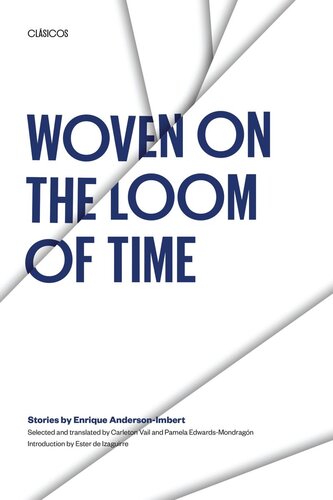

Most ebook files are in PDF format, so you can easily read them using various software such as Foxit Reader or directly on the Google Chrome browser.
Some ebook files are released by publishers in other formats such as .awz, .mobi, .epub, .fb2, etc. You may need to install specific software to read these formats on mobile/PC, such as Calibre.
Please read the tutorial at this link: https://ebookbell.com/faq
We offer FREE conversion to the popular formats you request; however, this may take some time. Therefore, right after payment, please email us, and we will try to provide the service as quickly as possible.
For some exceptional file formats or broken links (if any), please refrain from opening any disputes. Instead, email us first, and we will try to assist within a maximum of 6 hours.
EbookBell Team

5.0
88 reviewsArgentinian scholar and writer Enrique Anderson-Imbert is familiar to many North American students for his La Literatura de América Latina I and II, which are widely used in college Spanish courses. But Anderson-Imbert is also a noted creative writer, whose use of "magical realism" helped pave the way for such writers as Borges, Cortázar, Sábato, and Ocampo. In this anthology, Carleton Vail and Pamela Edwards-Mondragón have chosen stories from the period 1965 to 1985 to introduce English-speaking readers to the creative work of Enrique Anderson-Imbert. Representative stories from the collections The Cheshire Cat, The Swindler Retires, Madness Plays at Chess, Klein's Bottle, Two Women and One Julián, and The Size of the Witches illustrate Anderson-Imbert's unique style and world view. Many are "short short" stories, which Anderson-Imbert calls casos (instances). The range of subjects and points of view varies widely, challenging such "realities" as time and space, right and wrong, science and religion. In a prologue, Anderson-Imbert tells an imaginary reader, "Each one of my stories is a closed entity, brief because it has caught a single spasm of life in a single leap of fantasy. Only a reading of all my stories will reveal my world-view." The reader asks, "And are you sure that it is worth the trouble?" Anderson-Imbert replies, "No." The unexpected, ironic ending is one of the great pleasures of reading Enrique Anderson-Imbert.